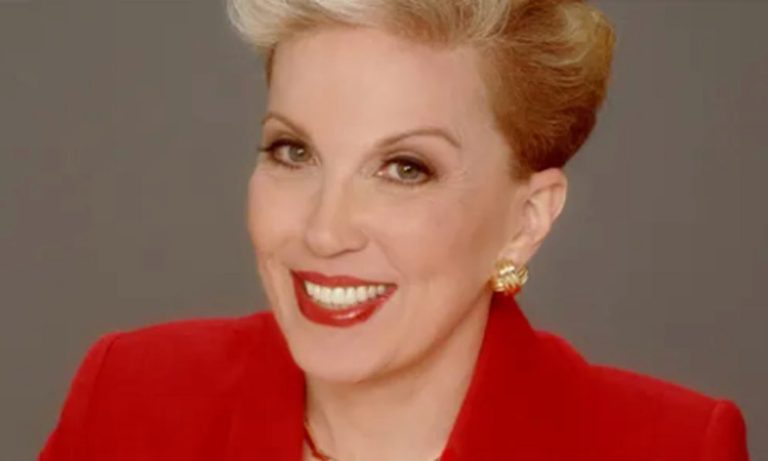Since day one of his administration, the fossil fuel industry and its right-wing allies have disingenuously blamed President Joe Biden for increases in fuel prices, falsely claiming the administration was holding back fossil fuel production.
Now, evidence is mounting that Big Oil may have conspired behind the scenes to sock American consumers with higher prices at the pump.
In a blockbuster civil settlement reached in May, the Federal Trade Commission revealed that the former CEO of Texas’ largest oil drilling company sent hundreds of text messages to OPEC representatives, allegedly intending to hold down oil production.
Neither Scott Sheffield, the oil tycoon, nor his former company, Pioneer Natural Resources, are household names outside the Texas oil industry. Nevertheless, Pioneer and other large independent oil and gas producers compete with international oil majors such as Chevron and Exxon, ensuring that worldwide oil prices reflect genuine supply-and-demand dynamics rather than illegal market manipulation.
If Pioneer sought to collude with OPEC nations to limit oil production, as the FTC alleges, that would push oil prices and oil company profits through the roof, as has been true for the last three years. The FTC has referred the case to the Department of Justice for a potential criminal prosecution.
Accusing Sheffield of a “sustained and long-running strategy to coordinate output reductions,” the FTC blocked Sheffield from serving on the board of ExxonMobil, which acquired Pioneer for nearly $60 billion. Pioneer denies that Sheffield’s statements were intended to circumvent competition laws.
Keeping a lid on production allows Big Oil to reap monster profits at the expense of the driving public. The ultra-wealthy leaders of the OPEC oil cartel, the 12-country organization that controls nearly 80% of global crude oil reserves, have the power to move prices up and down based on production levels. Ten more countries, including Russia, are known as OPEC+ and collaborate with the cartel.
Expanding the oil cartel
Sheffield seems to have preferred an even larger cartel, drawing Texas’ oil producers into collusion with the OPEC+ nations. “If Texas leads the way, maybe we can get OPEC to cut production,” the FTC reports Sheffield as saying. “Maybe Saudi and Russia will follow. That was our plan,” he said, adding: “I was using the tactics of OPEC+ to get a bigger OPEC+ done.”
Sheffield is not alone in advocating for production limits. Many oil and gas giants spent several years publicly arguing about the need to dial back production at a time of low prices.
For example, in 2016, oil billionaire Harold Hamm, a close ally of former President Donald Trump, called for Russia and OPEC to dial back output and end their price war, which was holding prices down.
“I think it would be high time for them to come to an agreement,” Hamm said. “U.S. producers have cut back, we’ve done our part, it would finally make sense for a freeze in production to be implemented.”
The public needs to learn more about potential industry collusion to limit production. Democrats on the House Energy and Commerce Committee have launched an investigation into the behavior of seven oil and gas companies, including BP, Chevron, Shell and Occidental Petroleum, and numerous Democratic senators are asking Justice and the FTC to probe further.
Congress must investigate the content of publicly disclosed meetings between OPEC and U.S. oil producers at which production limits may have been discussed in private. Indeed, after meeting with U.S. shale players at a dinner in Houston, Gabriel Mbaga Obiang Lima, a top official from Equatorial Guinea, a prominent African oil producer, told Reuters: “The key thing is that information is shared about our projections; it really helps everybody.”
Greed and collusion?
Related Articles
ConocoPhillips buying Marathon Oil for $17.1 billion
Pro-Palestinian demonstrators disrupt Chevron shareholder meeting
Letters: Price recall | Trump coverage | Trans athletes
Opinion: What Newsom should do next to curb Big Oil emissions
Opinion: Accepting fossil fuel funds undermines Stanford’s new Sustainability School
The FTC, Congress and Justice must aggressively investigate the extent of oil industry collusion and whether it violated civil and criminal laws. Though there’s still a lot we don’t yet know, there’s a lot we do:
• While Big Oil has decried the Biden administration for limiting U.S. oil production, in reality, U.S. fossil fuel production has soared under Biden to the highest output in history, largely thanks to U.S. oil exports that hurt Americans.
• In 2021 and 2022, surging demand combined with restricted supply sent the price of oil soaring and led to unfathomable profits. The top five oil companies made almost $200 billion in profits in 2022 at the direct expense of consumers in the United States and worldwide.
• The formula for this massive rip-off of the public was simple: prices soared, production costs remained flat, consumers suffered and Big Oil lined its pockets. Meanwhile, Big Oil deployed its political power to defeat a simple measure — windfall profit taxes — that could have returned the excessive profits to consumers.
We know that Pioneer CEO Sheffield pursued a strategy to reduce output and raise prices and wasn’t shy about saying so publicly. The truth is this: It’s not the Biden administration that drove up oil prices. It was the greed of Big Oil.
Now it’s time to find out if that greed was coupled with illegal collusion.
Rep. Ro Khanna, D-California, is on the House Oversight environment subcommittee. Robert Weissman is the president of Public Citizen. They wrote this for InsideSources.com. ©2024 Tribune Content Agency.












